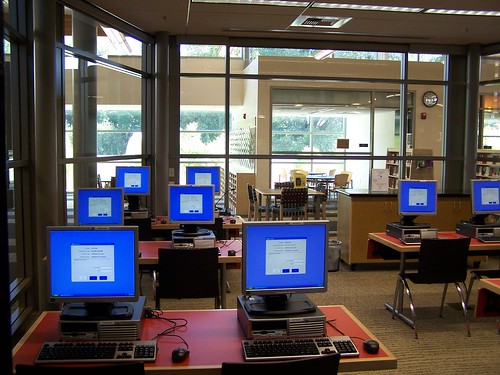This fabulous article from Common Sense Media (one of my favourite non-profit sites for frank reviews of movies, TV shows, books and music for kids and teens) tracks one woman’s efforts to figure out what information is given away when her 12-year-old daughter plays and does homework online.
Christina Tynan-Wood writes about her decision to allow her pre-teen to have an account on Facebook, despite that site’s policy of only allowing those 13 and over to legally open an account. She isn’t alone – it’s an issue I’ve struggled with as well. Like Tynan-Wood, I felt that saying no to Facebook had a social impact for my twin daughters. And as I discuss in this article, allowing them on the social media website with strict rules and supervision meant I could help them make sense of it while they were young enough to still listen to their mom. According to Consumer Reports, 7.5 million Facebook users are under 13.
One practical impact of the parental decision to allow our kids on Facebook is the massive amount of information these (and other) sites are able to collect about their activities online.
It’s the social networking sites, though, that give me the most pause. It might not seem like a big deal: She installs a silly app, plays a game, “LOLs” on photos, posts a picture, announces what she’s doing, creates a fake job, and “marries” her classroom crush. She’s having a blast.
But the apps aren’t really free. She often “pays” for them by allowing access to her — and sometimes her friends’ — profiles. Add this to the information that she and her friends willingly provide, even the fact that they’re friends, and collect it all into a dossier, and you’d have quite a portrait of my little girl and her crew. The companies that collect this data claim that they never connect this information to individuals, and Facebook prohibits app makers from transmitting data to outside companies — but large breaches have happened.
And what happens when my baby isn’t a baby anymore? Will “the machine” have created a detailed analysis by then of what sort of employee, insurance risk, or student she’ll be? Will it understand that she was playing around when she claimed to work at IHOP? Will it know that the girls didn’t understand what it meant when they called each other prostitutes? Will it strip these games of context, feed it to a database as fact, and sell it to credit companies, insurance agencies, employers, colleges, marketing firms, or the highest bidder? That sounds paranoid. But there have been so many mistakes, break-ins, breaches, and accidents in the world of data collection that the CEO of Sony recently announced publicly that he can’t guarantee the security of Sony’s video game network or any other Web system in the “bad new world” of cybercrime.
These are really important questions. We tend to be kind of laid-back about it because we can’t really see it happening on the surface, but the sheer amount of information collected about our kids is staggering. How will this affect them when they are 25? 40? The answer is we don’t really know. But clearly crossing our fingers and hoping for the best isn’t the best reaction.
The first response is awareness, among both parents and their kids. The second is education. How can we fine tune our security settings and firewalls? What kinds of information should never be given out online? How can we stay on top of the information about us and our children that is out there on the web? These are important questions to have with your kids from the time they are old enough to open their first Club Penguin or Moshi Monsters account. These are some of the questions I’ll be looking at in depth in future posts, and I welcome any comments or suggestions from readers.

 This past fall semester, I taught a course at
This past fall semester, I taught a course at 